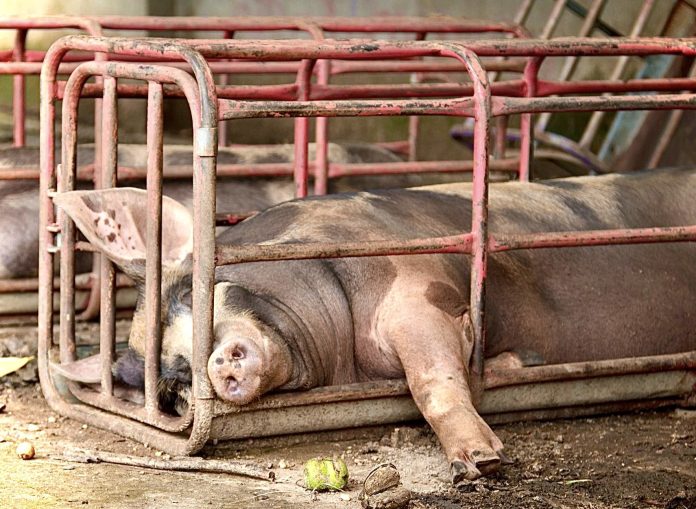European Union policymakers, animal welfare experts, industry representatives, and non-governmental organizations, gathered last week at the European Parliament for a roundtable discussion on the necessity of raising welfare standards for the production of pigs.
Animal scientists conveyed the need to end the intensive crate confinement of pigs, and transition to higher welfare systems that meet the inherent welfare needs of these intelligent and social animals.
This debate is extremely timely given the impending delivery of a package of legislative proposals by the European Commission for the revision and expansion of the scope of the existing EU animal welfare legislation. In its response to the European Citizen’s Initiative to End the Cage Age in 2021, the commission pledged to propose an end to caged confinement for farm animals. Last week’s event highlighted the need for them to abide by this important commitment to advancing animal welfare.
“At present, more than 140 million pigs are being kept in the EU, the vast majority of which are regrettably still being housed in production systems that fail to adequately meet their complex welfare needs. The science is crystal clear. It is time to end the close confinement of these highly intelligent animals in stalls and crates, and begin to respect the integrity of the species and the animals’ behavioral needs,” said Dr. Joanna Swabe, senior director of public affairs for Humane Society International/Europe.
“The living environments for pigs need to be enriched, they should be kept in family groups and the practice of mutilating their bodies should be prohibited. The revision of the EU animal welfare legislation is a golden opportunity for politicians, policymakers and the pig industry to get things right and align more accurately with science and the will of European citizens,” continued Dr. Joanna. “We strongly urge them to pay heed to the animal welfare scientists and support the Commission’s proposals that aim to ensure that the pigs we keep for food are afforded a dignified existence.”
HSI/Europe’s vision for the future of pig production was presented at this event by animal welfare scientist Dr. Heleen van de Weerd, who provided an overview of minimum standards for pig production in the EU:
-
An end to close confinement for pigs in stalls or crates.
-
The selection of pigs for robustness, includes traits, such as lower prolificacy, good mothering skills, low aggression, and resilience in local conditions.
-
The necessity for pig housing to offer variation, with spacious, functional areas for secluded resting and activities, such as foraging and rooting, eating and drinking. Pigs must also have access to a bedded area, with materials, such as straw, for comfort and enrichment.
-
Respect for the species’ integrity. This entails keeping pigs in family group systems where sows and their piglets live together. Piglets should also not be mixed and moved as little as possible. Social groups should remain together.
-
Litter size must be aligned with sow nursing capacity and the weaning age must more closely approach the natural weaning age.
-
An end to unnecessary surgical mutilations. All pigs must have intact bodies (no castration, tail docking, teeth clipping, or ear notching)
-
Pig handling must be respectful and pay full regard to species-typical behavior without causing stress to the animals. There must be a culture of care on pig farms with each farm appointing a trained and named animal welfare officer legally responsible for overseeing and ensuring the welfare of the animals on the premises.



